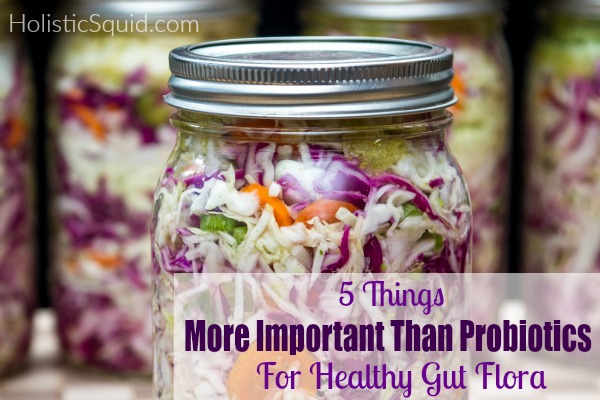
[We've talked a lot before about the health benefits of probiotics – but most folks don't realize that there's much more to healthy gut flora than consuming beneficial bacteria in supplements and food. In this enlightening post, Dr. Natcha Maithai explains what you must do for a healthy gut – beyond probiotics. How many of these things are YOU doing? ~Holistic Squid]
Did you know that we are more bacteria than humans? For every one of our cells, there are ten bacteria cells in our bodies. Crazy, right?
If you are savvy about natural health, you may already be consuming fermented foods and taking probiotic supplements for healthy gut flora.
Dysbiosis or imbalances of the gut bacteria can lead to inflammation which underlie many chronic health issues. While dysbiosis happens in the gut, it is linked to all aspects of health, including:
- Obesity (source)
- Diabetes (source)
- Anxiety/depression (source)
- Skin problems like eczema (source) and
- Autism (source)
Science has shown that factors – other than simply eating probiotics – have bigger impact on which bacteria stay and thrive in the gut.
Unfortunately, it has become rather normal to live a lifestyle that is very unfriendly to our healthy gut flora. When I suffered from severe eczema a few years ago, introducing probiotic supplements helped, but in order to completely heal I had to overhaul much of my lifestyle.
Beyond eating probiotics, it is especially important to be conscious of these factors to ensure a good balanced gut flora. Here are five ways to support healthy tribes of bacteria in your gut.
#1 – Manage your stress
Your gut bacteria reflects if you are stressed, and stress alone can lead to dysbiosis and even leaky gut (source). This may partly explain why some people still struggle with health problems even though they are eating a perfect diet and taking lots of good supplements.
In order to keep your gut bacteria happy, you must keep your stress levels in check. If you are living a high stress lifestyle, consider delegating some tasks, taking time out for yourself, and meditating.
#2 – Eat PRE-biotics
For healthy gut flora it's essential to eat a whole foods diet with plenty of prebiotics too – foods that feed good bacteria. These include lots of vegetables, fruit, and inulin fibers (aka starch).
Most bacteria in probiotic supplements are transient – meaning they come and leave, while other species stay for longer, depending on if they are happy to stay. Prebiotics are essential to rebalance healthy gut flora because they encourage beneficial bacteria to linger.
#3 – Avoid conventionally raised meats
We know that antibiotics can wipe out good bacteria and cause dysbiosis. The problem is that it has become normal to be constantly exposed to antimicrobials multiple times a day, every single day.
Antibiotics from the pharmacy are not your only exposure to antibiotics. More than 70% of antibiotics used in the United States are fed to conventionally raised livestock, poultry and farmed fish. Antibiotic residues can be detected in these meats (for example: this study).
These antibiotic residues may be below a dosage categorized to cause harm to humans. However, for someone who consumes conventionally raised meats every single day, this can be a constant assault to their gut bacteria leading to dysbiosis.
Avoid conventionally raised meats and opt for organic, pasture-raised or wild caught. If such quality is not possible, antibiotic-free is a great step up from conventional.
#4 – Remove chlorine in your water
In the water treatment process, water is chlorinated in order to kill potentially harmful bacteria. In addition, our water supply may have small but detectable residual levels of medications that people urinate out. These may include antibiotics, chemotherapy and antidepressants, just to name a few. It is, therefore, important to remove these harmful substances from your drinking water as much as possible.
A typical carbon filter sold in the supermarket only removes chlorine and volatile organic compounds from water, but not the residual medications or fluoride. You will need a reverse osmosis water filtration system or the countertop Big Berkey to completely remove medication residue and fluoride from your drinking water.
Beyond your drinking water, it is also important to filter bathing water, especially if you take hot showers. In the shower, you may also be inhaling chlorine gases that evaporate from tap water. This is even more dangerous than drinking water because the chlorine can immediately hit your bloodstream. I use Aquasana activated carbon shower filter which removes most of the chlorine and volatile organic compounds in the tap water.
Remember, also, that your skin is a house for the skin microbiota. By removing chlorine and other dangerous chemicals from your bathing water, you are allowing the skin bacteria to thrive and support your best skin health.
#5 – Avoid antibacterials in your soaps
Triclosan is a thyroid-disrupting antibacterial substance that is added to hand soaps, toothpastes, dishwashing liquid, and laundry detergents. Triclosan, and other antibacterials like parabens and polyphenols, can be readily absorbed in the bloodstream and is detected in urine (for example: source).
Many folks wash their hands with triclosan-containing hand soaps before touching foods that they eat, which means that they could be eating small doses of triclosan. When we are not aware of this, we can be exposed to small doses of antibiotics on a regular basis, which can lead to dysbiosis both in the gut and on the skin (for example: source).
Research has shown that simple soap without antibacterial chemicals do just as well to prevent diseases as soap with antibacterial properties (source). Even the medical communities know that using antibacterial soaps can create antibiotic resistant superbugs, but they still use it.
If you suffer from dysbiosis, it is important to limit, if not completely avoid, exposure to antimicrobial chemicals in your environment. Simple staples like Dr. Bronner’s soap, vinegar and baking soda, or this all natural, all-purpose cleaning solution, will accomplish the cleaning and disinfecting you need without causing dysbiosis or disrupting hormones.
By all means, keep eating probiotic-rich foods and supplementing as needed, but follow these steps above to ensure a healthy gut flora beyond consuming probiotics.
How do you give your gut flora some love? Let me know in the comments.
Natcha Maithai is a biomedical researcher turned holistic nutritionist, fitness coach and Functional Diagnostic Nutrition practitioner. She is passionate about empowering women to become masters of their bodies through fitness, hormone balancing, functional medicine and quantified-self technologies. Find her at natchamaithai.ca.



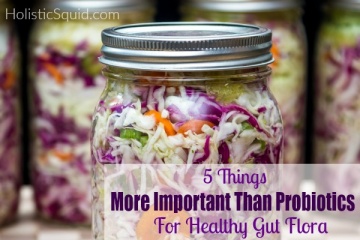

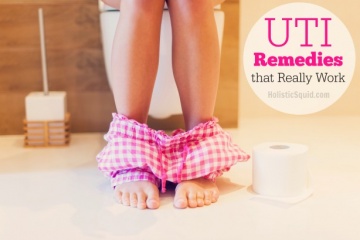

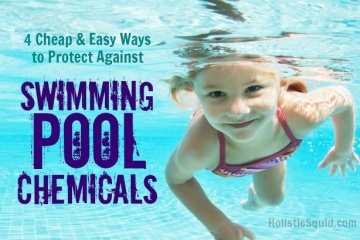
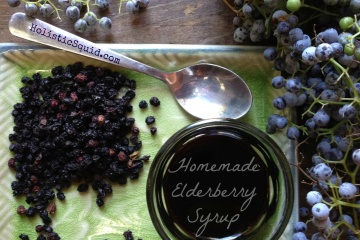

Hello, I thpught it was a great article!! I always try to add probiotics to our family diet, we drink water from a water filter (Berkey), and try to eat good meats. I was wondering if there might be a potential effect in gut and skin bactetia for kids (athletes) that swim on the regular basis (everyday). I was thinking if the constant contact with chlorine would have a harmful effect. Thank you.
Gabriela Swimming in chlorinated water does affect the skin bacteria and chlorine is an oxidant so beyond washing up before and after, you can try Dr. Ohhira’s product to replenish the skin bacteria and increasing antioxidant intake. Also, I recommend checking out this podcast episode by Ben Greenfield http://www.bengreenfieldfitness.com/2012/05/how-to-reduce-the-risk-from-swimming-in-chlorinated-pools-and-drinking-chlorinated-water/.
Great article, thank you very much. Some questions:
-Have you heard of the Aquatru water filter? How it compares to the Big Berkey?
-Recommendation for Functional Doctors and Nutritionists in Northern Nevada/
Thank you again and wishes for a beautiful day,
char
Hi Char. I’m not familiar with Aquatru filter. I personally use Nimbus Watermaker Mini. The Big Berkey is good.
As for functional doctor in Nevada – check PrimalDocs.com and the listing with the Institute of Functional Medicine. I’m listed on there but I’m not in Nevada. It might be worth seeing one remotely. There are lots of them in California so you may want to travel for the first appointment, and once in a while, but consult with them over the phone or Skype.
Is it possible to email your reply directly to me please, I may not see it if added to the article.
Thank you
Just curious if you could provide more details on prebiotics. I’m 16 months post partum and still not feeling back to ‘normal’, had some tests done and discovered my gut flora diversity is, well, not diverse at all. (Like, AT ALL). So I’m doing probiotics and bone broth and eating fermented foods, but this is the third place I’ve heard about PRE biotics…but I’m still not clear on what they are and what specific foods I’d get those in? Thanks!
Hi Rachel as for not feeling “normal”, there could be multiple causes to it in addition to gut bacteria. Which test did you use? As far as I know, aside from screening for potential pathogens, the stool tests aren’t yet reliable for guiding specific bacteria supplementation or diet. The research isn’t there yet.
Good sources of prebiotics could be lots of vegetables, gelatin, and fermentable fibers like inulin and chicory root etc. I prefer food sources, but if you were to supplement, I would say start small and gradually increase the dose.
You might also want to look into amine sensitivity. If you have that eating fermented foods and bone broth could cause more problems
Most cities use chloramine now for sanitizing water. It is chlorine and ammonia bonded together. It is much more stable than chlorine and does not get filtered by regular filters. What works is adding vitamin c powder to your bath. It dissolves this chemical. They also make vit c shower filters